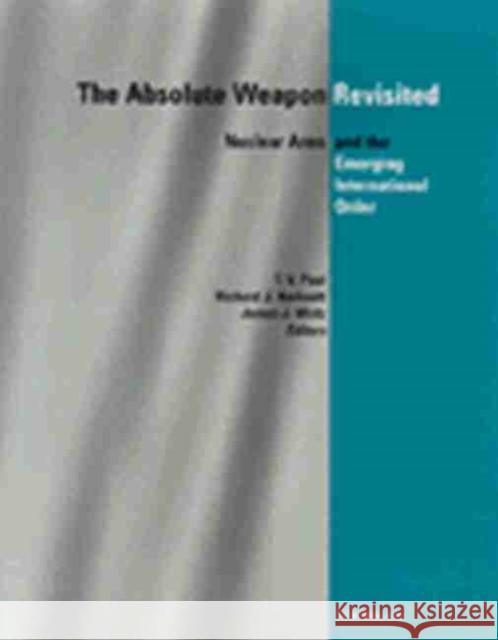The Absolute Weapon Revisited: Nuclear Arms and the Emerging International Order » książka
The Absolute Weapon Revisited: Nuclear Arms and the Emerging International Order
ISBN-13: 9780472087006 / Angielski / Miękka / 2000 / 320 str.
Soon after nuclear weapons devastated the Japanese cities of Hiroshima and Nagasaki, Bernard Brodie and several colleagues wrote The Absolute Weapon, which predicted that the atomic bomb would revolutionize international politics. In TheAbsolute Weapon Revisited, a group of noted scholars explores the contemporary role of nuclear weapons in the world after the end of the Cold War. Although superpower rivalry has faded, the complexities of living with nuclear weapons remain.
Working from different theoretical perspectives, the contributors offer a set of provocative assessments of nuclear deterrence and the risks of nuclear proliferation and disarmament. Some argue that assured destruction capabilities remain important, while others argue that nuclear deterrence will be increasingly irrelevant. Arms control, crisis stability, and continuity and change in nuclear doctrine as well as new issues such as virtual nuclear states and information warfare, are some of the issues addressed by the contributors to The Absolute Weapon Revisited. The contributors are Zachary Davis, Colin S. Gray, Richard J. Harknett, Ashok Kapur, Robert Manning, William C. Martel, Eric Mlyn, John Mueller, J. V. Paul, George Quester, and James J. Wirtz.
This book will be of interest to scholars, policymakers and students interested in issues of nuclear strategy and deterrence, arms control, nonproliferation and disarmament, international security and peace studies.
T. V. Paul is Associate Professor of Political Science, McGill University, and the author of AsymmetricConflicts: War Initiation by Weaker Powers. James J. Wirtz is Associate Professor of Security Affairs, Naval Postgraduate School, and the author of The Tet Offensive: Intelligence Failure at War. Richard Harknett is Assistant Professor of Political Science, University of Cincinnati, and the author of numerous articles on security affairs.











